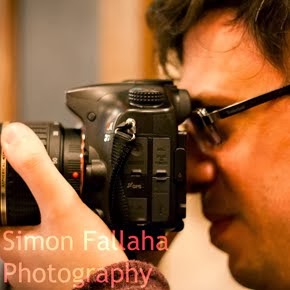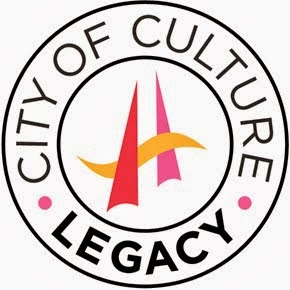The City Of Culture's specially commissioned punk musical provides no end of Glee for its Rebels Without A Cause – but not necessarily for its audience
When you title a production Teenage Kicks, you're in danger of digging a hole for yourself before the show has even begun. One knows that Colin Bateman's musical, staged in Derry-Londonderry’s Millennium Forum and co-produced by the Forum and Nerve Centre, will not be able to avoid the inevitable comparisons with the song that made The Undertones, and its beautifully simplistic summation of the spirit behind the 1970s punk movement. Not to mention the record store and label that injected said song into the stratosphere to begin with.
So, how to go about things? Retell the story through the prism of a powerful central performance, a la Good Vibrations, or go for the appeal of an ensemble jukebox musical?
Ultimately, Bateman takes aim for the middle ground and ends up with something more Phil Collins than Undertones; that is to say, anvilicious messages and not entirely convincing "love" stories layered over undeniably commendable production values. As Collins himself would say, how can something so right, at least aesthetically, end up going so wrong? Something happens on the way to (punk) heaven during the show, to be sure, but it's not all that exciting. That, surely, is not what the producers intended.
The central story involves Derry teen Jimmy McMurphy (Drew Dillon) and his escape from Northern Ireland in 1981, by way of a student exchange programme to St. Francis Xavier High School in Iowa, USA. Principal Truman (Hugh McLaughlin) expects a war-torn refugee, but the exuberant, rock-loving youngster has something else up his sleeve for his new friends – the "rebellion" and "anarchy" of the Irish punk scene.
It’s a framework around which the production scatters a total of twelve punk classics (including, but not limited to, Stiff Little Fingers' "Alternative Ulster" and Wreckless Eric's "Whole Wide World") and the efforts of the ensemble to set the material alight, culminating in a group performance of The Undertones' most famous song at the end of each act.
If it sounds like nothing new, it's because it frankly isn't. Early on, the intentionally sloppy choreography and not quite in unison singing hints that maybe the play will be more about the passion than the music, a collection of young, confused voices finding their way in an adult world – but how many times have we heard this before?
And what follows? An Irish guy forced over to America in clichéd circumstances (a gun going off in a struggle) where he introduces a class of kids to the wonders of punk? Dangerous echoes of the White Man's Burden abound. I suppose we should be grateful, at least, that Jimmy's background is genuinely seeped in Irish punk and that he isn't teaching the Chuck Berry's of the 1980's how to rock and roll.
It's not impossible to do something exciting with these tropes; the cast of Bend It Like Beckham and 2004's Wimbledon had enough charm and energy to gloss over those films' predictability. But even the economically inventive set design (among the best I've seen this year), the consummate skill of the backing band and the likable earnestness of the cast of all ages can't rescue Bateman's script.
Gifted with a host of talent to work with, Bateman wastes it. It isn't hard to imagine what Teenage Kicks might be with a more courageous, not to mention clear, vision. One recalls Nicky Harley as the geeky Melissa; refreshingly refusing to be patronised, or adhere to the ugly duckling-turned-swan stereotype, she breaks clear to convincingly relay the differences between Irish and American culture (isn't it fascinating how many Americans delightfully embrace their "Irishness", especially today?) in addition to criticizing the music that the production openly worships.
In addition to Harley, Hugh McLaughlin delivers a nicely executed comic performance worthy of Greg Davies, Karen Rush and Rhiannon Chesterman are convincingly vulnerable as a troubled mother and daughter, respectively, and Drew Dillon and Darren Franklin (as Jimmy's cousin, Kevin) are solid leads. But the cast's attempts to form any sort of chemistry on stage never stretch beyond friendship. It becomes clear that the true romance in Teenage Kicks lies not between the boys, girls, men and women of Derry and Iowa, but between Colin Bateman and the music he loves.
Yet behind the exciting tunes and a sprinkling of amusing moments lies a troublesome, thoughtful message; that the punk of the 1970s wasn't so much about rebellion but about creating a new clique of Rebels Without A Cause, who sensed that there was something more to life but were no more certain about how to go about it. That Northern Ireland's legendary contribution to the musical world may have been no edgier than the Graduates and Breakfast Clubs of this world; as much as we loved them, and still do, they reek of conservatism underneath their subversive blankets. In short, Teenage Kicks is really only intriguing in spite of itself. It's a punk Glee or Alternative Ulster's Mamma Mia; and if that's what you want, then that's what you'll get. Although given both its status and the people involved, I feel one has a right to expect more.
Teenage Kicks runs in Derry-Londonderry's Millennium Forum until Saturday November 9. For more information, click here.















0 comments:
Post a Comment